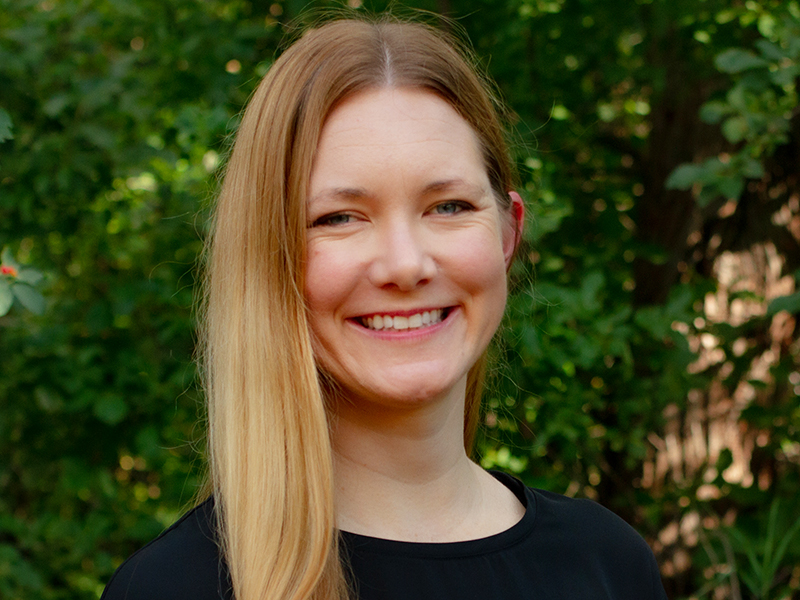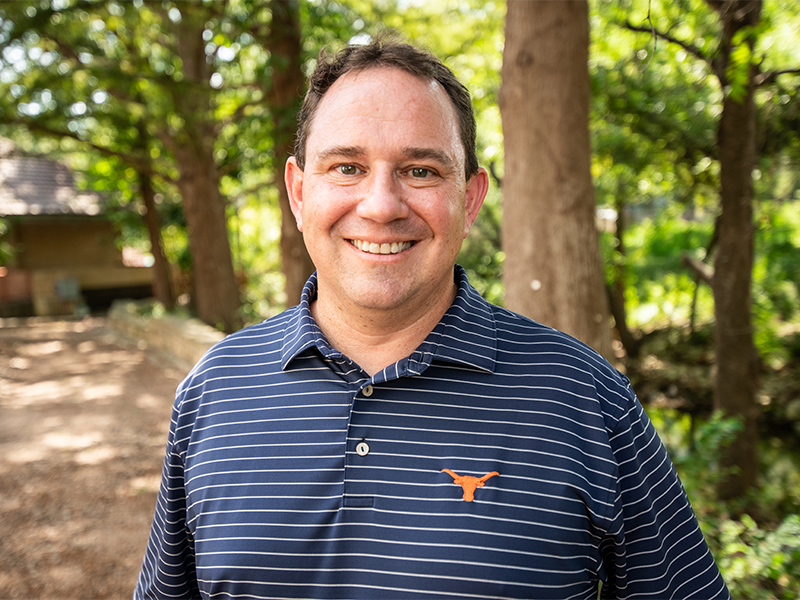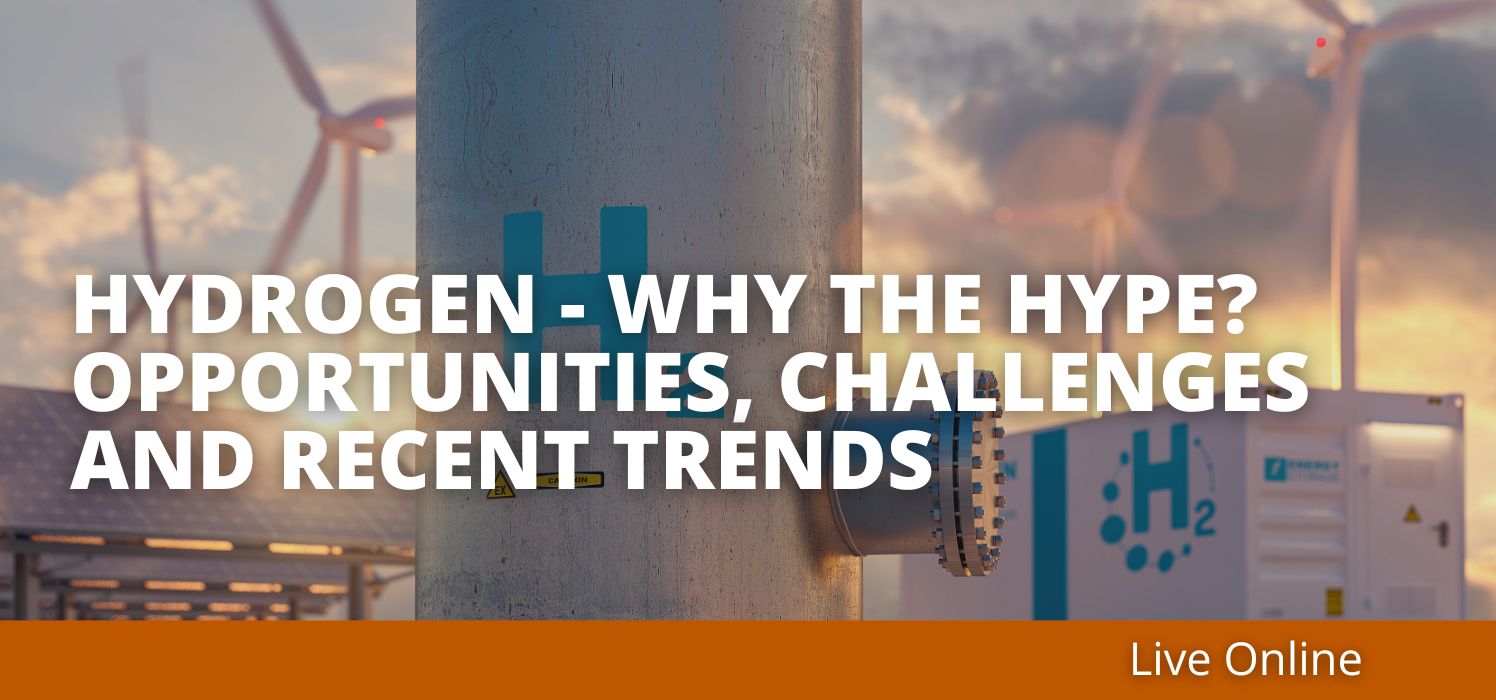TBD
10 a.m. – 12 p.m. CT
Emily Beagle, Ph.D., lead instructor
Live Online via Zoom. Recordings provided.
$600. Group Discounts Available
Credentials: 0.6 CEUs and Cockrell School of Engineering Digital Badge
This three-day online course is for energy sector professionals seeking an understanding of hydrogen and its role in energy transition, including the opportunities, challenges and policy implications related to its deployment and hydrogen’s role in being a climate solution.
This course aims to provide a technical baseline of understanding to evaluate the media and policy hype around hydrogen. It includes up-to-date technical, economic and policy information for hydrogen across its supply chain and an introduction of publicly available tools for analyzing hydrogen.Hydrogen is particularly attractive because of its versatility and potential use in hard-to-abate sectors such as heavy transportation and industry, where electrification is expensive or infeasible. Hydrogen can be produced from various inputs, including natural gas, solar, wind and nuclear energy, and with various processes, such as reformation, electrolysis and pyrolysis.
Taught through a combination of lectures and discussion, students gain a complete understanding of why hydrogen is considered a key tool for future decarbonization policies and projects to support. Topics to be covered include:
- Development of an international hydrogen market.
- Processes in the hydrogen supply chain, from production to end-use.
- Considerations, challenges and existing tools and resources for analyzing hydrogen processes and projects.
| Dates | Time | Location | Price | |
|---|
| TBD |
10 a.m. – 12 p.m. CT |
Online via Zoom |
$600 |
Registration is closed |
For group and student discounts and special government, military, and non-profit rates, please contact This email address is being protected from spambots. You need JavaScript enabled to view it..
Registrants from Portugal: Take advantage of special course arrangements as part of the UT Austin | Portugal Program. Click here to register.
Learning Objectives
- Understand why hydrogen is being considered a key tool for decarbonization.
- Be informed on the status of policies and projects to support the development of an international hydrogen market.
- Learn baseline knowledge on the various processes in the hydrogen supply chain, from production to end-use, and the considerations and challenges of each.
- Become familiar with existing resources and tools for analyzing hydrogen processes and projects.
 Emily Beagle, Ph.D., (Lead Instructor) is a research associate in the Webber Energy Group at UT Austin. She currently works on energy policy and pathways to the decarbonization of the global energy system, with a particular focus on the deployment and use of hydrogen to reduce emissions in the hardest-to-abate sectors. Beagle is interested in using technical and engineering analysis to inform energy policy development. Before joining the Webber Energy Group, Beagle was a senior associate with the Climate Aligned Industries program at RMI and led the policy work for the Green Hydrogen Catapult project. She also served as the ASME Congressional Fellow in Energy in the office of Senator Tina Smith in 2020. Beagle holds bachelor's degrees in Energy Systems Engineering and Mechanical Engineering, as well as a Master's and Ph.D. in Mechanical Engineering from the University of Wyoming.
Emily Beagle, Ph.D., (Lead Instructor) is a research associate in the Webber Energy Group at UT Austin. She currently works on energy policy and pathways to the decarbonization of the global energy system, with a particular focus on the deployment and use of hydrogen to reduce emissions in the hardest-to-abate sectors. Beagle is interested in using technical and engineering analysis to inform energy policy development. Before joining the Webber Energy Group, Beagle was a senior associate with the Climate Aligned Industries program at RMI and led the policy work for the Green Hydrogen Catapult project. She also served as the ASME Congressional Fellow in Energy in the office of Senator Tina Smith in 2020. Beagle holds bachelor's degrees in Energy Systems Engineering and Mechanical Engineering, as well as a Master's and Ph.D. in Mechanical Engineering from the University of Wyoming.
 Michael E. Webber, Ph.D., is the Josey Centennial Professor in Energy Resources at the University of Texas at Austin and CTO of Energy Impact Partners, a $1.5 billion cleantech venture fund. From September 2018 to August 2021, Webber was based in Paris, France where he served as the Chief Science and Technology Officer at ENGIE, a global energy & infrastructure services company. Webber’s expertise spans research and education at the convergence of engineering, policy and commercialization on topics related to innovation, energy and the environment. His latest book Power Trip: the Story of Energy was published in 2019 by Basic Books with an award-winning six-part companion series that aired on PBS, Amazon Prime and iTunes starting Earth Day 2020. His first book, Thirst for Power: Energy, Water and Human Survival, which addresses the connection between earth’s most valuable resources and offers a hopeful approach toward a sustainable future, was published in 2016 by Yale Press and was converted into an hour-long documentary. Webber was selected as a Fellow of ASME (the American Society of Mechanical Engineers) and as a member of the 4th class of the Presidential Leadership Scholars, which is a leadership training program organized by Presidents George W. Bush and William J. Clinton. He has authored more than 400 publications, holds six patents, and serves on the advisory board for Scientific American. A successful entrepreneur, Webber was one of three founders in 2015 of an educational technology startup, DISCO Learning Media, which was acquired in 2018. Webber holds a B.S. and B.A. from UT Austin, and M.S. and Ph.D. in mechanical engineering from Stanford University. He was honored as an American Fellow of the German Marshall Fund and an AT&T Industrial Ecology Fellow on four separate occasions by the University of Texas for exceptional teaching.
Michael E. Webber, Ph.D., is the Josey Centennial Professor in Energy Resources at the University of Texas at Austin and CTO of Energy Impact Partners, a $1.5 billion cleantech venture fund. From September 2018 to August 2021, Webber was based in Paris, France where he served as the Chief Science and Technology Officer at ENGIE, a global energy & infrastructure services company. Webber’s expertise spans research and education at the convergence of engineering, policy and commercialization on topics related to innovation, energy and the environment. His latest book Power Trip: the Story of Energy was published in 2019 by Basic Books with an award-winning six-part companion series that aired on PBS, Amazon Prime and iTunes starting Earth Day 2020. His first book, Thirst for Power: Energy, Water and Human Survival, which addresses the connection between earth’s most valuable resources and offers a hopeful approach toward a sustainable future, was published in 2016 by Yale Press and was converted into an hour-long documentary. Webber was selected as a Fellow of ASME (the American Society of Mechanical Engineers) and as a member of the 4th class of the Presidential Leadership Scholars, which is a leadership training program organized by Presidents George W. Bush and William J. Clinton. He has authored more than 400 publications, holds six patents, and serves on the advisory board for Scientific American. A successful entrepreneur, Webber was one of three founders in 2015 of an educational technology startup, DISCO Learning Media, which was acquired in 2018. Webber holds a B.S. and B.A. from UT Austin, and M.S. and Ph.D. in mechanical engineering from Stanford University. He was honored as an American Fellow of the German Marshall Fund and an AT&T Industrial Ecology Fellow on four separate occasions by the University of Texas for exceptional teaching.
 Mr. Michael Lewis is a research scientist at The University of Texas at Austin Center for Electromechanics. He has more than 25 years of experience in advanced research and technology development, focusing on alternative fuels and renewable energy for transportation and stationary power applications, including hydrogen power and energy systems. Lewis’ team has developed, built and tested fuel cell hybrid vehicles, ranging from small utility trucks to transit buses, to medium and heavy-duty trucks. Beyond vehicles, his team has also investigated materials-based hydrogen generation technologies, alternative storage vessel designs and the use of linear motor-driven compressors and expenders for hydrogen fueling. Lewis is currently leading UT’s efforts on the DOE H2@Scale in Texas award that will demonstrate renewable pathways for hydrogen production and enable cost-effective hydrogen for transportation and industrial applications. In addition, this project will also study the opportunities for a hydrogen energy economy in Texas and the Gulf Coast region. With this research, Lewis’ team aims to advance alternative fuels and energy technologies and collaborate with industrial partners to accelerate their adoption and commercialization.
Mr. Michael Lewis is a research scientist at The University of Texas at Austin Center for Electromechanics. He has more than 25 years of experience in advanced research and technology development, focusing on alternative fuels and renewable energy for transportation and stationary power applications, including hydrogen power and energy systems. Lewis’ team has developed, built and tested fuel cell hybrid vehicles, ranging from small utility trucks to transit buses, to medium and heavy-duty trucks. Beyond vehicles, his team has also investigated materials-based hydrogen generation technologies, alternative storage vessel designs and the use of linear motor-driven compressors and expenders for hydrogen fueling. Lewis is currently leading UT’s efforts on the DOE H2@Scale in Texas award that will demonstrate renewable pathways for hydrogen production and enable cost-effective hydrogen for transportation and industrial applications. In addition, this project will also study the opportunities for a hydrogen energy economy in Texas and the Gulf Coast region. With this research, Lewis’ team aims to advance alternative fuels and energy technologies and collaborate with industrial partners to accelerate their adoption and commercialization.
- Energy professionals – both industry and government affiliated.
- Reporters.
- Environmental advocate.
- Anyone interested learning more about hydrogen and its effects.
Participants will be awarded 0.6 CEUs upon completion of course as well as a Cockrell School of Engineering Digital Badge.
“Different perspectives, diverse applications, dangers involved. It was a complete overview about Hydrogen.”
- Mara Santos, ENI
“The overall atmosphere of the course was really engaging and friendly.”
- José Silva, Faculdade de Ciências Universidade de Lisboa
For questions and inquiries, please contact This email address is being protected from spambots. You need JavaScript enabled to view it..


 Emily Beagle, Ph.D., (Lead Instructor) is a research associate in the Webber Energy Group at UT Austin. She currently works on energy policy and pathways to the decarbonization of the global energy system, with a particular focus on the deployment and use of hydrogen to reduce emissions in the hardest-to-abate sectors. Beagle is interested in using technical and engineering analysis to inform energy policy development. Before joining the Webber Energy Group, Beagle was a senior associate with the Climate Aligned Industries program at RMI and led the policy work for the Green Hydrogen Catapult project. She also served as the ASME Congressional Fellow in Energy in the office of Senator Tina Smith in 2020. Beagle holds bachelor's degrees in Energy Systems Engineering and Mechanical Engineering, as well as a Master's and Ph.D. in Mechanical Engineering from the University of Wyoming.
Emily Beagle, Ph.D., (Lead Instructor) is a research associate in the Webber Energy Group at UT Austin. She currently works on energy policy and pathways to the decarbonization of the global energy system, with a particular focus on the deployment and use of hydrogen to reduce emissions in the hardest-to-abate sectors. Beagle is interested in using technical and engineering analysis to inform energy policy development. Before joining the Webber Energy Group, Beagle was a senior associate with the Climate Aligned Industries program at RMI and led the policy work for the Green Hydrogen Catapult project. She also served as the ASME Congressional Fellow in Energy in the office of Senator Tina Smith in 2020. Beagle holds bachelor's degrees in Energy Systems Engineering and Mechanical Engineering, as well as a Master's and Ph.D. in Mechanical Engineering from the University of Wyoming. Michael E. Webber, Ph.D., is the Josey Centennial Professor in Energy Resources at the University of Texas at Austin and CTO of Energy Impact Partners, a $1.5 billion cleantech venture fund. From September 2018 to August 2021, Webber was based in Paris, France where he served as the Chief Science and Technology Officer at ENGIE, a global energy & infrastructure services company. Webber’s expertise spans research and education at the convergence of engineering, policy and commercialization on topics related to innovation, energy and the environment. His latest book Power Trip: the Story of Energy was published in 2019 by Basic Books with an award-winning six-part companion series that aired on PBS, Amazon Prime and iTunes starting Earth Day 2020. His first book, Thirst for Power: Energy, Water and Human Survival, which addresses the connection between earth’s most valuable resources and offers a hopeful approach toward a sustainable future, was published in 2016 by Yale Press and was converted into an hour-long documentary. Webber was selected as a Fellow of ASME (the American Society of Mechanical Engineers) and as a member of the 4th class of the Presidential Leadership Scholars, which is a leadership training program organized by Presidents George W. Bush and William J. Clinton. He has authored more than 400 publications, holds six patents, and serves on the advisory board for Scientific American. A successful entrepreneur, Webber was one of three founders in 2015 of an educational technology startup, DISCO Learning Media, which was acquired in 2018. Webber holds a B.S. and B.A. from UT Austin, and M.S. and Ph.D. in mechanical engineering from Stanford University. He was honored as an American Fellow of the German Marshall Fund and an AT&T Industrial Ecology Fellow on four separate occasions by the University of Texas for exceptional teaching.
Michael E. Webber, Ph.D., is the Josey Centennial Professor in Energy Resources at the University of Texas at Austin and CTO of Energy Impact Partners, a $1.5 billion cleantech venture fund. From September 2018 to August 2021, Webber was based in Paris, France where he served as the Chief Science and Technology Officer at ENGIE, a global energy & infrastructure services company. Webber’s expertise spans research and education at the convergence of engineering, policy and commercialization on topics related to innovation, energy and the environment. His latest book Power Trip: the Story of Energy was published in 2019 by Basic Books with an award-winning six-part companion series that aired on PBS, Amazon Prime and iTunes starting Earth Day 2020. His first book, Thirst for Power: Energy, Water and Human Survival, which addresses the connection between earth’s most valuable resources and offers a hopeful approach toward a sustainable future, was published in 2016 by Yale Press and was converted into an hour-long documentary. Webber was selected as a Fellow of ASME (the American Society of Mechanical Engineers) and as a member of the 4th class of the Presidential Leadership Scholars, which is a leadership training program organized by Presidents George W. Bush and William J. Clinton. He has authored more than 400 publications, holds six patents, and serves on the advisory board for Scientific American. A successful entrepreneur, Webber was one of three founders in 2015 of an educational technology startup, DISCO Learning Media, which was acquired in 2018. Webber holds a B.S. and B.A. from UT Austin, and M.S. and Ph.D. in mechanical engineering from Stanford University. He was honored as an American Fellow of the German Marshall Fund and an AT&T Industrial Ecology Fellow on four separate occasions by the University of Texas for exceptional teaching. Mr. Michael Lewis is a research scientist at The University of Texas at Austin Center for Electromechanics. He has more than 25 years of experience in advanced research and technology development, focusing on alternative fuels and renewable energy for transportation and stationary power applications, including hydrogen power and energy systems. Lewis’ team has developed, built and tested fuel cell hybrid vehicles, ranging from small utility trucks to transit buses, to medium and heavy-duty trucks. Beyond vehicles, his team has also investigated materials-based hydrogen generation technologies, alternative storage vessel designs and the use of linear motor-driven compressors and expenders for hydrogen fueling. Lewis is currently leading UT’s efforts on the DOE H2@Scale in Texas award that will demonstrate renewable pathways for hydrogen production and enable cost-effective hydrogen for transportation and industrial applications. In addition, this project will also study the opportunities for a hydrogen energy economy in Texas and the Gulf Coast region. With this research, Lewis’ team aims to advance alternative fuels and energy technologies and collaborate with industrial partners to accelerate their adoption and commercialization.
Mr. Michael Lewis is a research scientist at The University of Texas at Austin Center for Electromechanics. He has more than 25 years of experience in advanced research and technology development, focusing on alternative fuels and renewable energy for transportation and stationary power applications, including hydrogen power and energy systems. Lewis’ team has developed, built and tested fuel cell hybrid vehicles, ranging from small utility trucks to transit buses, to medium and heavy-duty trucks. Beyond vehicles, his team has also investigated materials-based hydrogen generation technologies, alternative storage vessel designs and the use of linear motor-driven compressors and expenders for hydrogen fueling. Lewis is currently leading UT’s efforts on the DOE H2@Scale in Texas award that will demonstrate renewable pathways for hydrogen production and enable cost-effective hydrogen for transportation and industrial applications. In addition, this project will also study the opportunities for a hydrogen energy economy in Texas and the Gulf Coast region. With this research, Lewis’ team aims to advance alternative fuels and energy technologies and collaborate with industrial partners to accelerate their adoption and commercialization.



